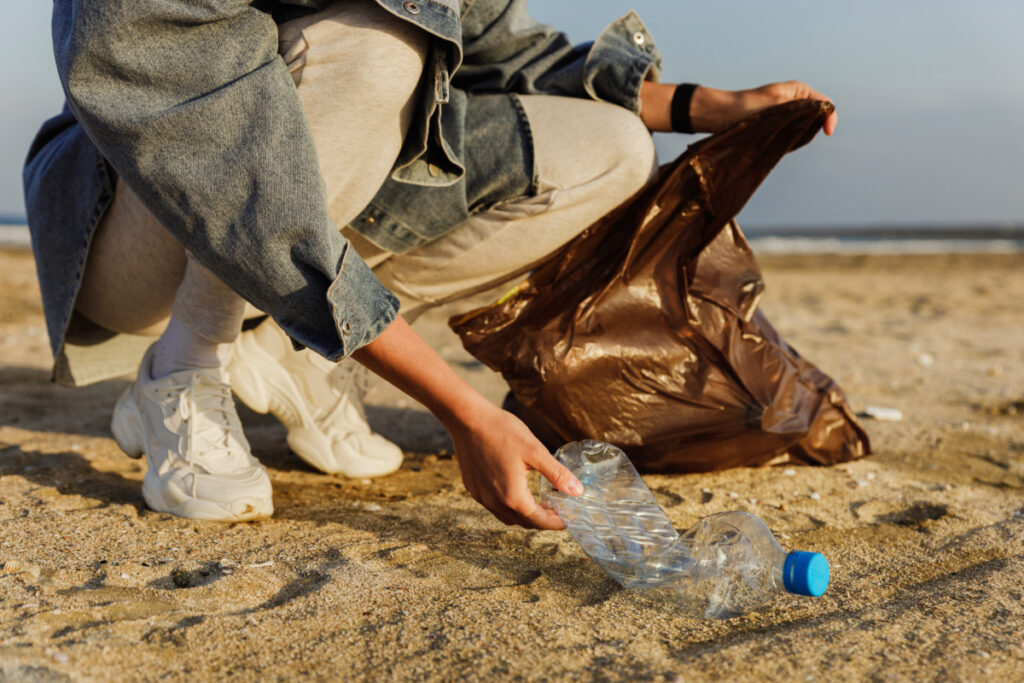Indonesia, a sprawling archipelago of over 17,000 islands, is grappling with a growing plastic pollution crisis. Plastic waste clogs waterways, litters beaches, and harms marine life, posing a significant threat to the environment and public health. In response to this challenge, Indonesia is turning to biodegradable plastic as a potential solution to reduce its plastic footprint.
The Plastic Problem in Indonesia
Indonesia is the second-largest contributor of plastic waste to the oceans, generating an estimated 3.2 million tons of plastic waste annually. This staggering amount of plastic waste stems from various sources, including single-use plastic bags, packaging materials, and disposable consumer goods.
The consequences of plastic pollution in Indonesia are far-reaching. Plastic waste clogs rivers and streams, disrupting ecosystems and endangering aquatic life. It litters beaches and coastal areas, marring the natural beauty of the archipelago. And it poses a health risk to humans, as microplastics, tiny fragments of plastic, can enter the food chain and cause harm.
Biodegradable Plastic: A Potential Solution
Biodegradable plastics offer a promising solution to address Indonesia’s plastic pollution crisis. These plastics are designed to break down into harmless substances, such as water, carbon dioxide, and organic matter, under specific environmental conditions. Unlike conventional plastics, which can persist in the environment for centuries, biodegradable plastics have the potential to reduce the long-term impact of plastic waste.
Types of Biodegradable Plastics
There are two main types of biodegradable plastics:
- Bio-based biodegradable plastics: These plastics are made from renewable resources, such as plant-based materials or agricultural byproducts. They biodegrade under both aerobic and anaerobic conditions, making them suitable for a wider range of environments.
- Petroleum-based biodegradable plastics: These plastics are derived from fossil fuels but are modified to biodegrade under specific conditions. They typically require industrial composting facilities to break down effectively.
Benefits of Biodegradable Plastics
The use of biodegradable plastics offers several potential benefits in addressing plastic pollution:
- Reduced environmental impact: Biodegradable plastics break down into harmless substances, minimizing their long-term impact on the environment.
- Litter reduction: Replacing conventional plastics with biodegradable alternatives can reduce the amount of plastic waste that ends up in landfills, waterways, and oceans.
- Sustainable resource management: Bio-based biodegradable plastics utilize renewable resources, reducing reliance on finite fossil fuels.
Challenges and Considerations
Despite the potential benefits, the use of biodegradable plastics also presents challenges and considerations:
- Biodegradation rates: The rate at which biodegradable plastics break down varies depending on the type of plastic and the environmental conditions. Some may require specific composting facilities to biodegrade effectively.
- Microplastics: Even biodegradable plastics can break down into microplastics, which may still pose a threat to the environment and human health. Further research is needed to understand the long-term impacts of microplastics from biodegradable sources.
- Cost and availability: Biodegradable plastics are often more expensive than conventional plastics, which may limit their widespread adoption. Additionally, the availability of certain types of biodegradable plastics may be restricted.
The Path Forward: Embracing Sustainable Practices
While biodegradable plastics offer a potential solution to plastic pollution, they should not be seen as a panacea. Addressing the plastic pollution crisis requires a comprehensive approach that encompasses:
- Reducing plastic consumption: Reducing the overall use of plastic is crucial to minimize the amount of waste generated. This includes promoting reusable alternatives, such as cloth bags and water bottles.
- Improving waste management systems: Effective waste collection, sorting, and recycling infrastructure are essential to prevent plastic waste from entering the environment.
- Raising public awareness: Educating the public about the environmental impact of plastic pollution and promoting sustainable consumption habits is crucial for long-term change.
Conclusion
Biodegradable plastics can play a role in Indonesia’s efforts to combat plastic pollution, but they should be part of a broader strategy that emphasizes reducing plastic consumption, improving waste management, and promoting sustainable practices. By embracing a holistic approach, Indonesia can move towards a cleaner and more sustainable future.

